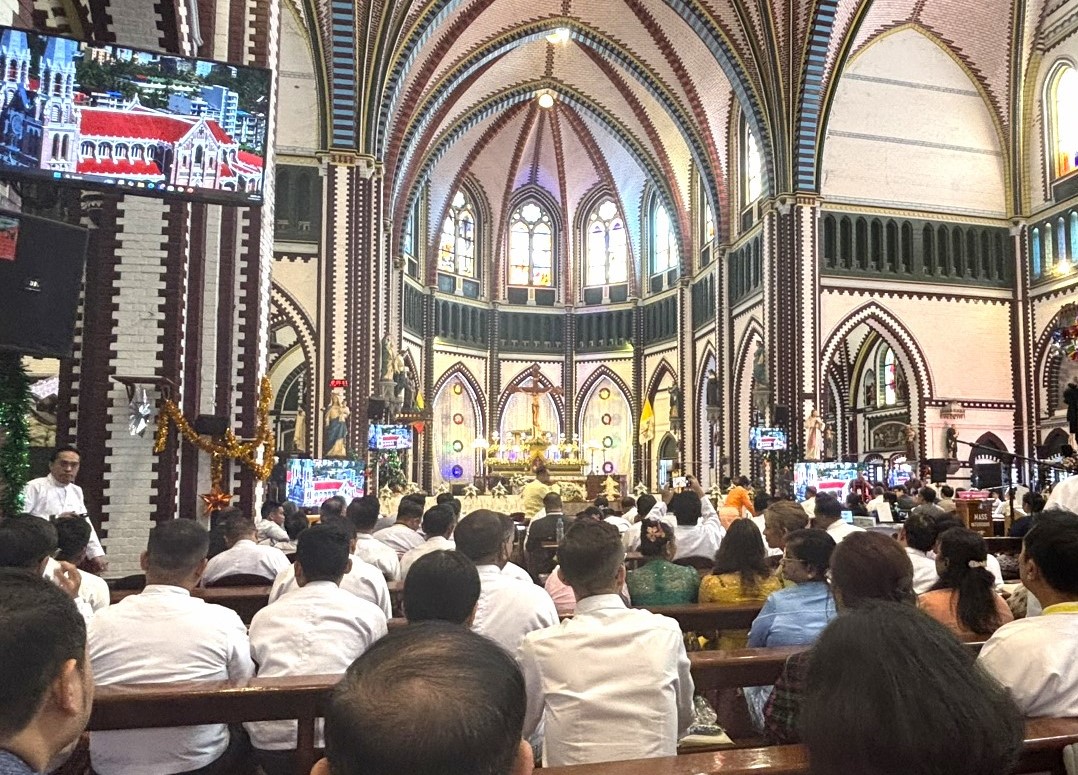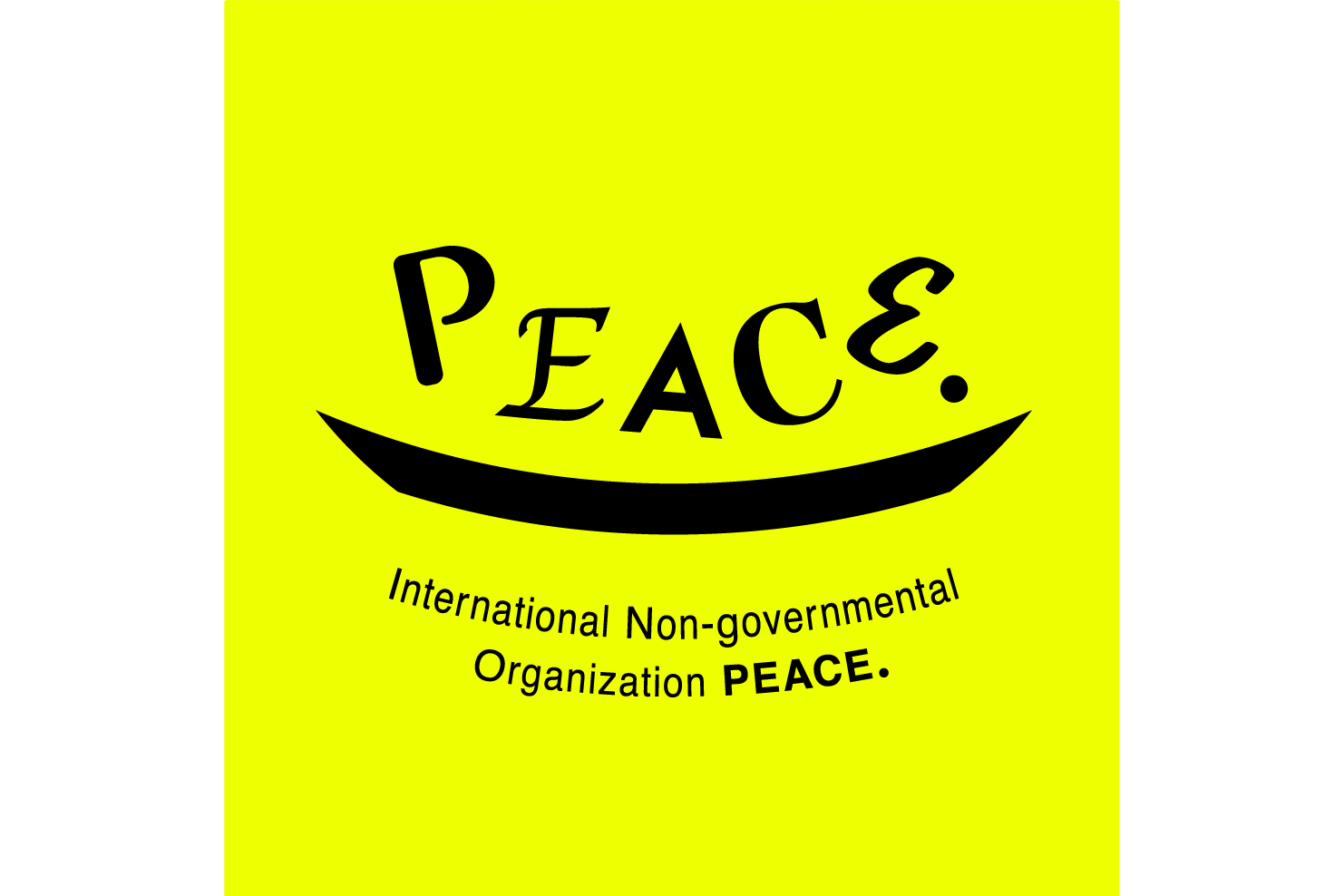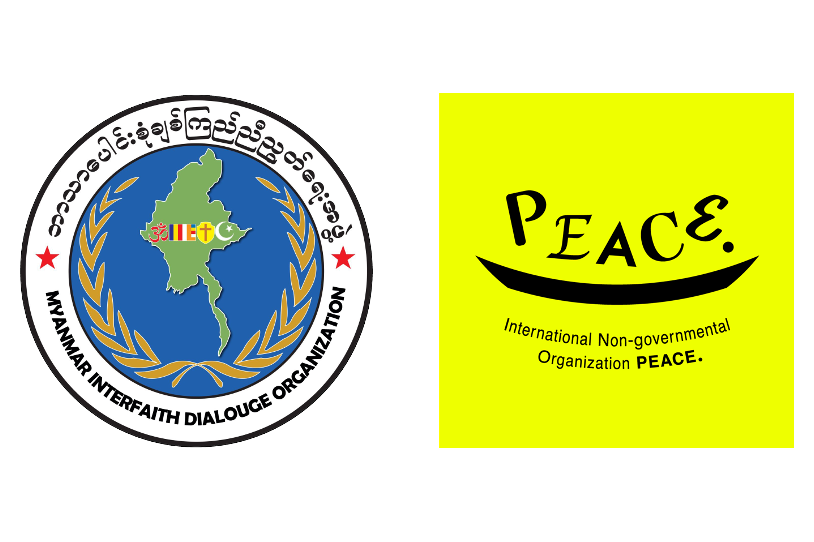Toward an International Peace Model Realizing ‘Social Justice Based on Human Dignity’ together with the religious community
International Non-governmental Organization PEACE. (Ingo PEACE., Headquarters: Chiyoda-ku, Tokyo) has officially signed a Strategic Alliance Agreement with the Myanmar Christian Peace Support Central Committee (MCPSCC, whose chairman is the Roman Catholic Archbishop of Yangon and Cardinal), a religious organization being joined by multiple denominations and sects of Myanmar Christian churches that promotes activities for the stability and harmony of local communities and the mitigation of conflict through a church network. As a first step in this collaboration, the two organizations are promoting the first joint peace project to return approximately 90,000 residents of Loikaw, the capital of Kayah State, who were forced to flee the city due to the civil war, to their hometowns.
Furthermore, around 6,000 children resumed their education, supported by the provision of teaching materials and educational supplies. This initiative is based on “prayer and dialogue,” and is a realistic attempt to bring together the religious community and civil society, transcending sects and denominations, in solidarity for the realization of social justice, and to regain the “freedom to choose our future.” It heralds the birth of a new peace model for the international community.
Background
On August 27, 2025, ingo PEACE. independently hosted the Myanmar Human Rights Seminar 2025 (Universal Values of Humanity Seminar) in Yangon, the first human rights seminar organized solely by a private independent body in Myanmar. At this historic event, ingo PEACE. advocated that human dignity and human rights must serve as the fundamental design principles of future society. This joint peace project, born from solidarity inspired by the vison, represents a concrete civil society initiative in which religious communities and international NGOs collaborate to advance peace efforts, including a ceasefire agreement, with the aim of rebuilding civil society*.
* “Civil society” differs from states and other power structures and refers to a society of solidarity in which citizens, such as local residents, religious communities, private organizations, and INGOs, engage with society of their own volition. As a member of this “civil society,” ingo PEACE. promotes peace through on-the-ground practice based on human dignity, rather than relying on intergovernmental diplomacy or the dynamics of power.
《Information Delivered Directly from the Local/On-site》
ingo PEACE. has established a local Myanmar management headquarters and is directly conducting operations together with our expatriate and local members. Amidst a confusing array of information, our organization reports on our activities based on local/on-site information.
Will and Solidarity of Civil
This project, in collaboration with religious organizations, promotes mutual understanding and implements activities that enable citizens to return to their hometowns. In a civil war situation, establishing mutual understanding not through military force or authority, but through cooperation between civil society and the religious community requires a series of dialogues that transcend the divisions that have arisen among people and unite them in peace efforts, and is not an easy process. Still, the project upheld the principle that “human rights are not something granted by others, but the will to choose the future.” As a result, under government agreement, safety was secured, and citizens divided by conflict were able to take a concrete step toward restoring their lives.

Joint Peace Project
Through this first joint peace project, approximately 90,000 citizens of Loikaw, the capital of Kayah State, have begun to return to their hometowns. As Loikaw is the political, social and religious center of the state and it was the focus of much of the population movement at the start of the civil war, this city is one of the first cities to be affected by the war. Today, the city is still in the process of reconstruction, with landmines and other dangers remaining. However, in this context, the fact that the return of citizens most affected by the civil war to their hometowns is progressing represents a tangible step forward for peace and can be seen as a sign of hope. In particular, the light of education has been rekindled for approximately 6,000 children. In conjunction with this, efforts are being made to lay the groundwork for post-conflict reconstruction and to create an environment that ensures learning for the future through the provision of educational support materials.



This outcome demonstrates that religious organizations and civil society can work together to implement “structures of peace” within society. It is not limited to one region but stands as a universal model of solidarity to protect human dignity.

Bridging the Past and the Future
Going back five months to April 9, 2025, ingo PEACE. carried out an international operation under a temporary ceasefire agreement, evacuating children—innocent lives with no responsibility for the war—from conflict zones to protective facilities. At the time, disclosure of this activity was withheld to ensure their safety. Yet this “principled action” itself embodies the consistent activism in advancing social justice through non-violent, civilian-led initiatives.


Video: The Local Record of the International Operation (April 9, 2025)
《Related News》 International Operation in Myanmar by PEACE. (April 9, 2025)
Future Outlook
ingo PEACE. and MCPSCC will steadily promote the return of citizens and the resumption of education beyond Kayah State step by step. Furthermore, we will deepen collaboration with international humanitarian organizations and human rights organizations, aiming to realize “social justice based on human dignity” through dialogue. It is also an effort to a new model of international cooperation in which the future is built not by nations or power, but by solidarity among citizens, religious communities, and the international community.
Based on the philosophy that “peace is a state in which the most vulnerable people can live in safety”, our organization will continue to act as a bridge between the religious community and citizens, transcending the logic of nations and power, and transcending sects and denominations.
A Small Step Can Move Society
What we strive to build is not a society where some win and others lose, but a coexistence society where all life can live in safety. This project is part of the “Hope Alliance” initiative, connecting empathy and action across borders. Humanity now stands at a civilizational turning point to share the benefits of coexistence.
In today’s world, diverse claims of “justice” exist. Yet justice that divides people or drives them into suffering cannot be called social justice. We believe that social justice resides in systems that protect the vulnerable and leave no one behind.
Therefore, rather than struggling over whose justice prevails, we will deepen solidarity on the common foundation of social justice. In a world where opinions are diverse, we believe that walking together with those who share the essence of this endeavor is the first step in building the future. We will continue our efforts to create a new model of a symbiotic society where all life can live in peace.
“The world is about to change.”
About Myanmar Christian Peace Support Central Committee (MCPSCC)
The Myanmar Christian Peace Support Central Committee (MCPSCC) is a religious organization made up of major Christian groups in Myanmar. The five member organizations are the Myanmar Council of Churches (MCC), the Myanmar Catholic Bishops’ Conference (CBCM), the Myanmar Evangelical Christian Alliance (MECA), the Myanmar Christian Mission Cooperation Committee, and the Seventh-day Adventist Church, and they work together across a wide range of denominations and sects.
Through nationwide church networks, MCPSCC promotes social stability, health and educational awareness, and disaster response, contributing to improved living conditions and reconstruction. In the situation of amid conflict and social unrest, MCPSCC plays an important role in protecting civilians and mediating dialogue, amplifying the voices of the people.
Internationally, MCPSCC works with networks such as the World Evangelical Alliance (WEA), World Council of Churches (WCC), UN agencies, and NGOs, and is recognized as a partner organization, supporting peace and stability across civil society beyond denominational lines.





